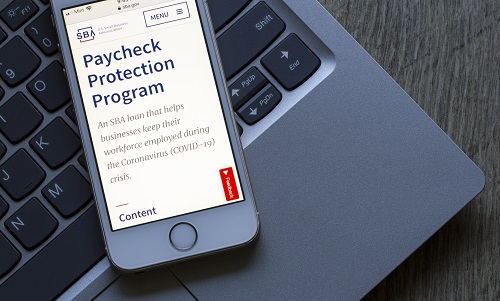The Biden Administration is making several changes to the Paycheck Protection Program that are designed to make it easier for the smallest businesses to obtain funding from the extremely popular COVID-19 relief program.
According to the White house, these reforms build on the program by targeting the relief to the “smallest businesses and those left behind in previous relief efforts.” The changes come just as political leaders are debating another round of stimulus and relief funding, this one a $1.9 trillion relief package that includes more support for businesses and individuals.
The original Paycheck Protection Program was designed only for small businesses, but the Biden Administration is now making it easier for the smallest of businesses to apply. Starting Wednesday and for two weeks after, only businesses with fewer than 20 employees can apply for a forgivable loan. This change is designed to give smaller businesses more time to work with lenders on securing necessary paperwork to apply for loans.
The administration also said it is revising the loan calculation formula to make it more possible for sole proprietors, independent contractors and self-employed workers to receive loans. According to the administration, 70 percent of businesses without employees are owned by women and people of color, and many were structurally excluded from the PPP or approved for very small amounts of money because of how loans are calculated. The changes announced Monday revise the loan calculation formula and establishes a $1 billion fund for businesses in those categories in low- and moderate-income areas.
The changes announced Monday also eliminate a restriction that presents small business owners with non-fraud felony convictions from obtaining relief through the PPP. Currently, if a business owner has an arrest or conviction related to financial assistance fraud within the last five years or any felony within the previous year is barred from obtaining a PPP loan. The administration is adopting a bipartisan reform in the PPP Second Chance Act to eliminate the restriction on any felony within the previous year, unless the applicant or owner is currently incarcerated.
The SBA will remove a student loan delinquency restriction. Currently, PPP funding is not available to any business with at least 20 percent ownership by someone who is currently delinquent or has defaulted within the last seven years on any federal debt, including student loans. Given the student debt crisis in the U.S., that impacts millions of people.
Non-citizen business owners in the U.S. will also have a easier time obtaining funding, as the administration is instructing the SBA to issue clear guidance on the ability for people to use their Individual Taxpayer Identification Numbers to apply for relief. People in the U.S. with a Green Card or visa can legally apply for loans, but a lack of guidance form the SBA has created inconsistency in access to funding for those individuals, per the administration.
Other changes include checks on fraud, revamping the PPP application, improving the SBA website, and enhancing the lender engagement model.










